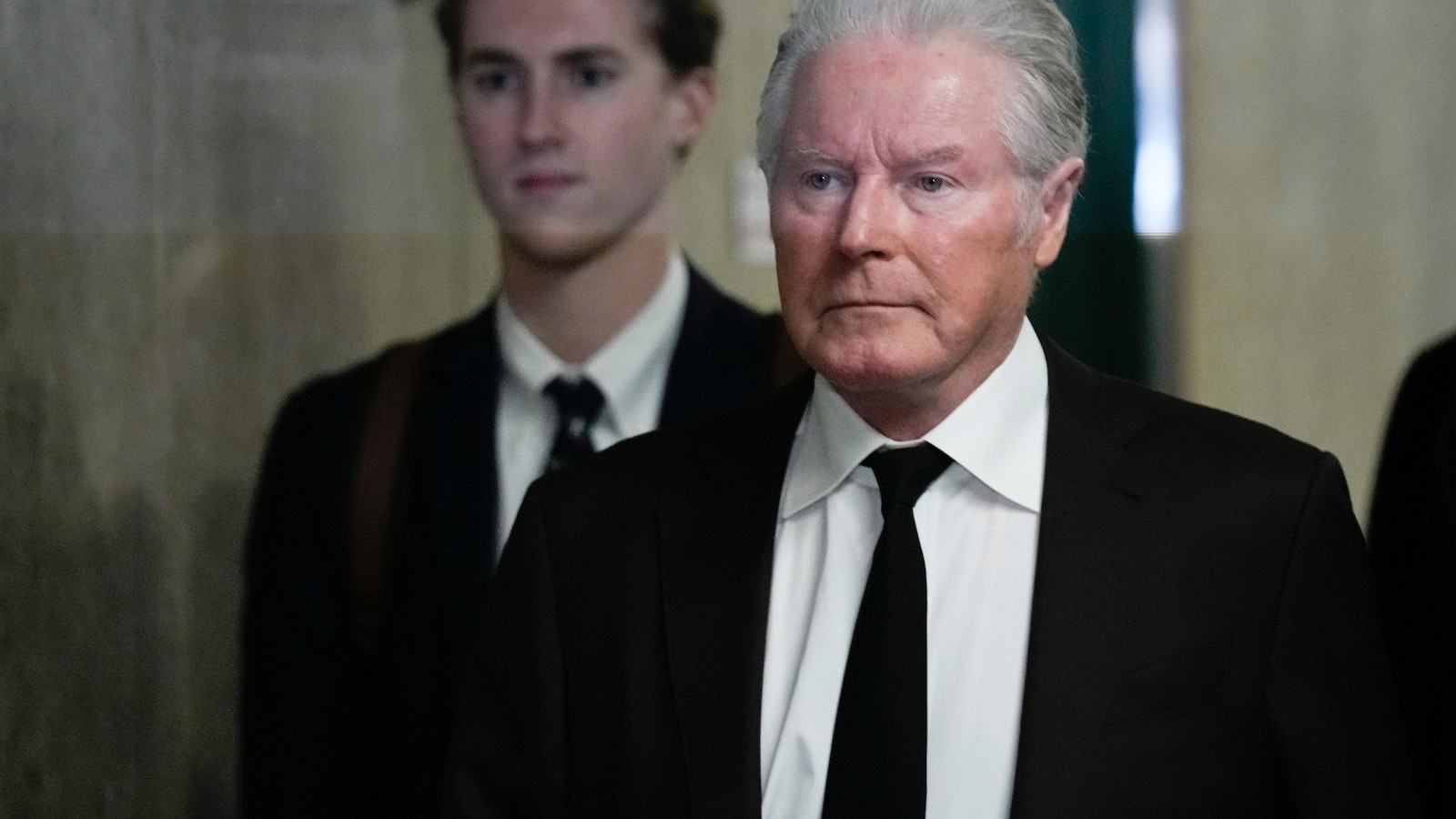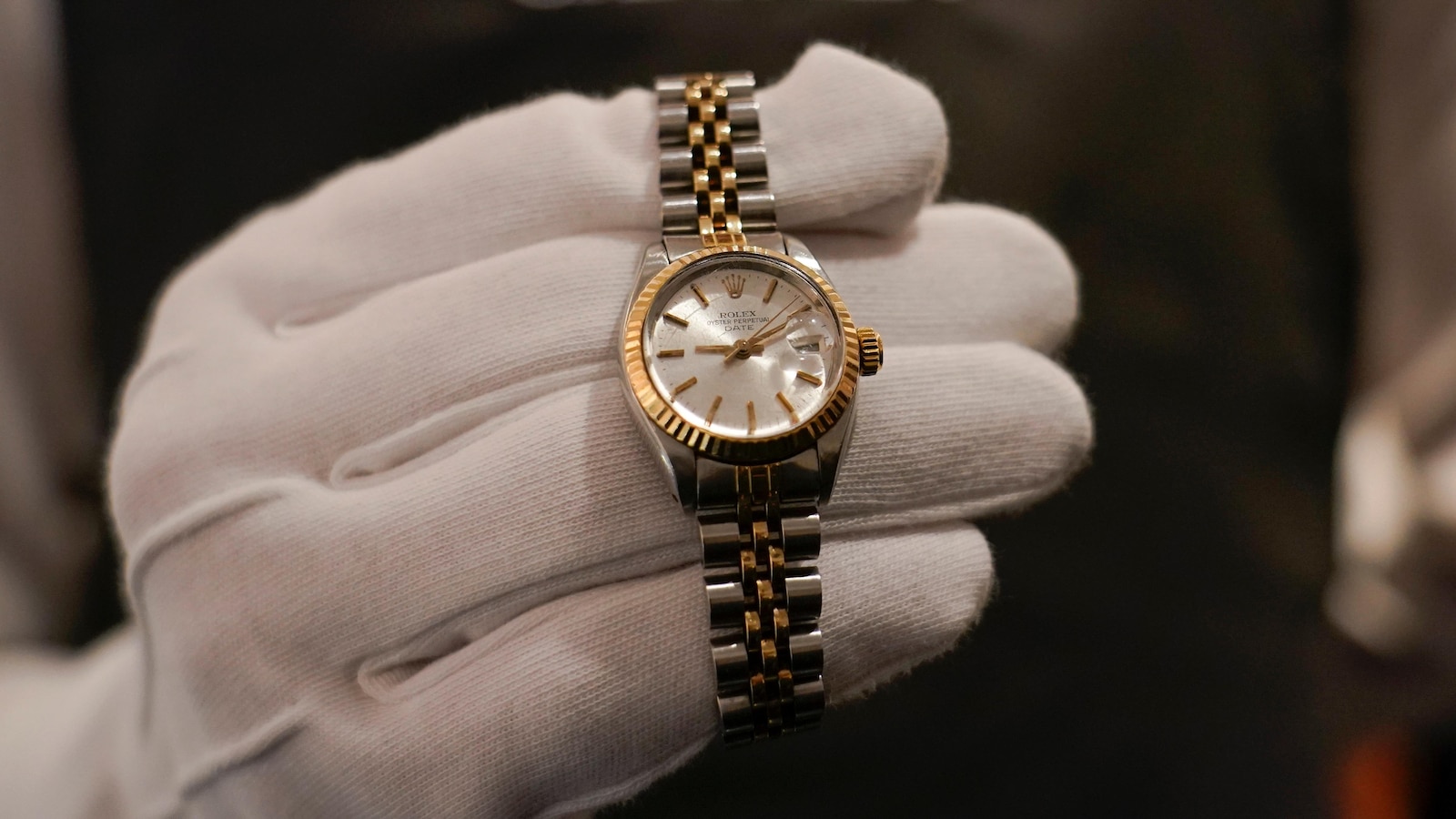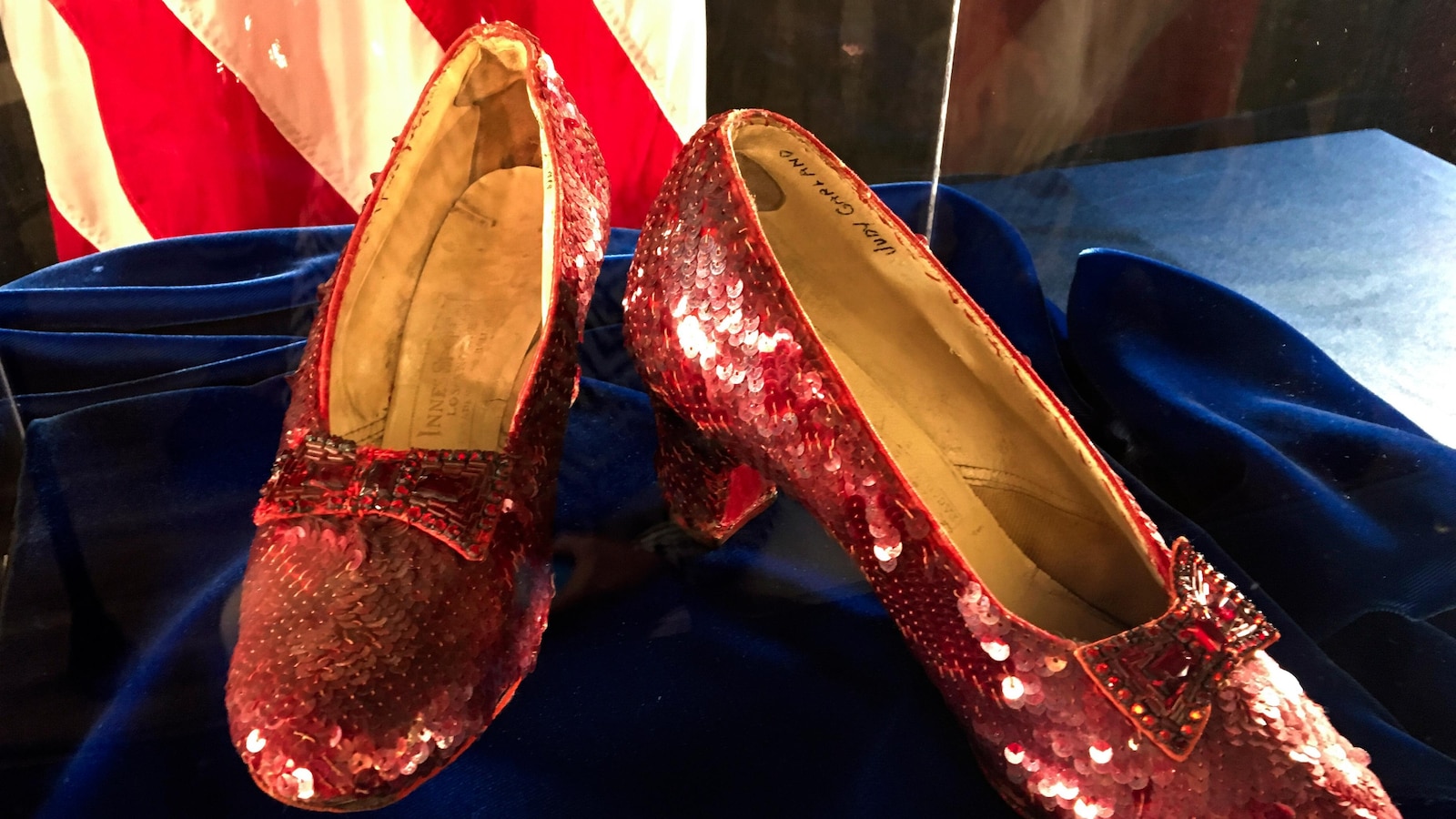
NEW YORK — Don Henley resumed testifying Tuesday in a trial over handwritten drafts of lyrics to some of the Eagles’ biggest hits, including “Hotel California,” and his decade-long effort to reclaim the pages.
After spending Monday telling the New York court about topics ranging from Eagles songwriting to his past personal troubles, the Eagles co-founder underwent further questioning Tuesday from lawyers for the three men on trial in the case.
Edward Kosinski, Craig Inciardi and Glenn Horowitz are charged with scheming to conceal the pages’ disputed ownership and sell them despite knowing that Henley claimed they had no right. The defendants have pleaded not guilty to charges including conspiracy to criminally possess stolen property.
They’re not charged with actually stealing the roughly 100 legal-pad sheets from the development of the Eagles’ 1976 release “Hotel California,” the third-best-selling album ever in the U.S. The sheets include drafts of the words to the song “Hotel California,” one of rock’s most enduring hits.
Horowitz bought the pages in 2005 from writer Ed Sanders, who worked with the Eagles decades earlier on a band biography that never got published. Horowitz later sold the the documents to Inciardi and Kosinski, who then put some pages up for auction.
Sanders isn’t charged with any crime. He hasn’t responded to messages about the case.
Henley bought back four pages of “Hotel California” song lyrics in 2012. He also went to authorities at the time, and again when more pages — some from the hit “Life in the Fast Lane” — turned up for sale in 2014 and 2016.
At the trial, Henley has testified that Sanders had no permission to keep or sell the pages, though he was allowed to view them in the course of writing the book.
“I believed that my property was stolen, Mr. Sanders kept it in his residence, his garage, for 30 years, and then it was up for sale on the internet. I believed that that was a crime,” Henley told the court Tuesday.
He testified Monday that he didn’t give permission for the “very personal, very private” lyrics drafts to be removed from his property in Malibu, California, though he acknowledged that he didn’t recall the entirety of his conversations with the writer in the late 1970s and early ’80s.
In a tape Monday of a 1980 phone call that was played Monday in court, Henley said he’d “try to dig through” his lyrics drafts in order to aid Sanders’ book.
Asked about the recording, Henley said he was talking about affording the writer “access. It’s not giving, it’s not gifting.”
Don Henley, the legendary musician and co-founder of the Eagles, has been providing testimony in an ongoing trial regarding the draft lyrics of the band’s iconic song “Hotel California.” The trial, which has been making headlines in the music industry, centers around allegations of copyright infringement and ownership of the song’s lyrics.
The dispute stems from a lawsuit filed by a former member of the band, who claims that he co-wrote the lyrics to “Hotel California” but was not given proper credit or compensation. The plaintiff alleges that he contributed significant portions of the song’s lyrics, including the famous opening lines “On a dark desert highway, cool wind in my hair.”
Henley, who has been steadfast in his denial of the plaintiff’s claims, has been providing detailed testimony in court to support his position. He has stated that he was the primary lyricist for the song and that any contributions made by others were minimal and did not warrant co-writing credits.
The trial has brought to light the complex and often contentious nature of songwriting credits in the music industry. While some songs are clearly the work of one individual, others involve collaboration between multiple writers, making it difficult to determine who deserves credit and royalties.
In the case of “Hotel California,” Henley’s testimony has shed light on the creative process behind the song and the extent of his involvement in crafting its lyrics. He has provided insight into the inspiration behind the song’s haunting imagery and evocative storytelling, giving fans a deeper understanding of its meaning and significance.
As the trial continues to unfold, music industry insiders and fans alike are eagerly following the proceedings to see how the dispute will be resolved. Regardless of the outcome, one thing is clear: “Hotel California” remains a timeless classic that continues to captivate audiences around the world, thanks in large part to Don Henley’s talent and creativity.


